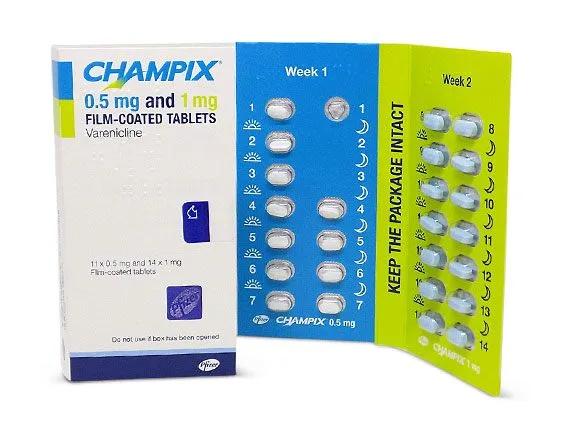
Vaping has become a popular alternative to cigarette smoking in recent years and many report having better success at quitting smoking with the use of vaping compared to traditional methods such as nicotine replacement therapy (NRT). According to The British Heart Foundation, one million smokers in England used an e-cigarette to help them quit smoking in 2015. But is it safe?
It’s important to understand the potential risks of using e-cigarettes. While the long-term effects of vaping have yet to be studied, there is evidence that suggests vaping can be harmful. While current research has not identified any irreversible damage from e-cigarette use specifically, there exist strong correlations between long-term usage of e-cigarettes and a wide range of negative health outcomes ranging from high blood pressure to increased risk of cardiovascular disease.
This blog post will look at some of the potential health risks associated with vaping and provide advice on how to make informed decisions about this popular trend. Let’s start by first looking at what vaping is and how it works.
What are electronic cigarettes?
It’s important to understand what e-cigarettes are and how they work.
- Electronic cigarettes, also known as e-cigarettes, e-cigs, vape pens and vapes are a popular alternative to traditional tobacco cigarettes
- Most people are not aware that e-cigarettes can go by several different names, such as ENDS (electronic nicotine delivery systems), JUULs (a type of electronic cigarette), e-hookahs, tank systems, mods and even cig-a-likes
- The term ‘vaping’ refers to the act of inhaling and exhaling the vapour produced by an e-cigarette
- Different terms for electronic cigarettes exist to make them easier to identify based on their size and shape as well as the way they deliver nicotine
- As with any other product, several different companies are making unique models of e-cigarettes and vaping devices that all require a small amount of knowledge to use safely and efficiently
How do E-cigarettes work?
E-cigarettes are devices designed to replicate the sensation of smoking. The three main components of an e-cig include a battery, an atomizer and a cartridge containing nicotine-laced liquid, which is heated by the atomiser to create vapour. The user then inhales this vapour in a process called “vaping”.
The vapour is inhaled deep into the lungs, evaporates quickly and carries the nicotine into the bloodstream. The user will experience an instant release of a ‘nicotine hit’ or ‘throat kick’, much like regular cigarettes, but without the presence of harmful toxins found in traditional smoking. However, long-term effects still need to be studied.
The liquids used in vapes come in various flavours, such as mint, mango or bubblegum, all of which can make them attractive to young adults.
What do e-cigarettes contain?
E-cigarettes are an increasingly popular option for individuals who want to switch to a smoke-free lifestyle. Although they are likely less harmful than combustible cigarettes, it is important to understand what you are consuming before considering vaping as an alternative.
E-cigarettes contain cartridges, which are filled with a liquid solution. The E-liquid usually consists of four main ingredients:
- Nicotine
- Propylene glycol and/or vegetable glycerin (also known as glycerol)
- Flavourings
- Other added chemicals depending on the brand
The nicotine content in e-cigarettes can vary greatly and some brands offer cartridges that are free from nicotine. This allows consumers to reduce their nicotine intake or completely stop it while still enjoying the flavour of the e-cigarette. Nicotine is the substance responsible for cravings and withdrawal symptoms, which can make quitting challenging. It is important to discuss your desired level with your healthcare professional when thinking about starting to use an e-cigarette.
What are the health risks of vaping?
Vaping comes with several health risks that you should consider before deciding whether it’s right for you.
One of the primary concerns associated with e-cigarette use is that they contain chemicals which may have a range of negative side effects on your body. Some common compounds found in e-cigarettes include propylene glycol and vegetable glycerin (which are used as solvents), flavourings, nickel (an allergen), diacetyl (a flavouring agent linked to lung disease), nitrosamines (carcinogens), formaldehyde (a carcinogen) and lead (a neurotoxin).
Many of these compounds have been linked to respiratory problems, such as irritation of the airways, lung injury, coughing or wheezing. Additionally, nicotine has been linked to various health issues such as heart disease, increased blood pressure and stroke as well as headaches, nausea and dizziness. It can also lead to nicotine dependence over time if vaped regularly over a long period of time.
Another risk associated with vaping is it’s potential to cause cancer. The aerosol produced by vape pens contains chemicals such as formaldehyde, diacetyl, volatile organic compounds and benzene, known carcinogens. Long-term exposure to these chemicals could increase your risk of developing certain types of cancer, such as lung cancer over time, so it’s important to be aware of these potential risks before deciding whether or not to vape. Evidence suggests that regular use of e-cigarettes may increase your risk of developing COPD (Chronic Obstructive Pulmonary Disease), a serious lung disease.
Is vaping safer than smoking cigarettes?
Every day, more and more people choose e-cigarettes as an alternative or replacement for traditional cigarettes, so it is extremely important to understand their safety. Some research and clinical studies have been done on the safety of e-cigarettes.
In February 2019, a major UK trial revealed that e-cigarettes could effectively aid smoking cessation. Nearly 900 participants underwent the study and its results showed promising findings; e-cigarette users were twice as likely to quit when compared with those using combination NRTs after receiving behavioural support. Additionally, cough and phlegm rates improved more swiftly among people who opted for vaping instead of nicotine replacement therapy.
Although long-term studies are ongoing, in the short-term, research indicates that e-cigarettes may lessen the risks associated with traditional smoking due to their health benefits and a much lower level of exposure to toxic chemicals compared to conventional cigarettes.
Clinical studies conclude that switching from combustible cigarettes to vaping results in numerous health improvements for e-cigarette users, including reduced levels of carbon monoxide and other harmful chemicals.
The safety and long-term health effects of using e-cigarettes or other vaping products are still unknown. Still, existing research has provided us with promising insight into this healthier option when compared to using combustible tobacco products.
What is the difference between vaping and smoking?
The biggest difference between vaping and smoking is what you’re consuming. E-cigarettes do not produce tar or carbon monoxide, two of the most harmful elements in tobacco smoke. However, both e-cigarettes and tobacco smoke contain nicotine.
When you smoke, you are inhaling burned tobacco that contains nicotine that is produced through combustion and mixed with other compounds. On the other hand, when you vape, you usually consume e-liquid or oil containing nicotine in a heated vapour form. This vapour does not contain any of the toxic compounds from burning tobacco as smoking does. However, vaping does deliver dangerous chemicals, including diacetyl and volatile organic compounds.
Smoking can involve cigarettes, cigars or pipes, while vaping is limited to e-cigarettes. Additionally, smoking leads to tar deposits in the lungs while vaping does not, so it may be less damaging to lung tissues. All in all, vaping and smoking differ in terms of method of use, inhalation of substances as well as effects on lung tissue.
Are e-cigarettes available on the NHS?
Electronic cigarettes are a relatively new way to help smokers quit, but they are not available on the NHS. Although an increasing number of people have been taking up “vaping” in recent years and have reported being successful at quitting traditional tobacco-based smoking, due to not enough long-term research into their safety, the NHS currently does not offer them as a smoking cessation aid.
However, there is growing evidence that E-cigarettes may be beneficial in helping smokers quit and could potentially provide long-term health benefits when they eliminate the use of regular cigarettes. Your GP or local stop-smoking service can provide you with more information to help you make an informed decision and support anyone who may want to consider vaping as an option.
It is advised that if somebody wishes to try out an electronic cigarette, they should purchase it from a reputable manufacturer or retailer, as there are many available on the market.
Impact on young people
The other major concern about e-cigarette use is that it may act as a gateway for young people to start smoking traditional cigarettes. Studies have found that teens who use e-cigarettes are more likely to try regular cigarettes than those who do not vape. This is partly due to the fact that e-cigarettes often contain higher levels of nicotine than regular cigarettes, which can lead users down a path towards nicotine addiction and appeal among young people due to their attractive packaging and flavours.
There is strong evidence that nicotine, the addictive component in e-cigarettes and tobacco products, hurts young and adolescents’ brain development. Research has revealed how e-cigarettes and other forms of nicotine can negatively affect cognitive brain function, such as memory, ability to pay attention and planning. In addition, it is known to stunt parts of the brain that control emotion and impulse management. This can cause changes in behaviour that place young people at risk for mental health disorders and even addiction as they mature into adulthood. Adolescents must be aware of these potential risks before deciding whether to use e-cigarettes or other nicotine products.
Final word
In conclusion, while research into the safety of vaping is still ongoing, there are potential health risks associated with vaping that everyone should be aware of before they partake in this activity. If you do decide to vape, then make sure you do so responsibly by using high-quality products from reputable manufacturers and avoiding any ingredients or chemicals that could potentially cause harm if inhaled over a long period. It’s also important to remember that there is no guarantee that any amount of vaping will be completely safe so always proceed with caution when considering whether or not this activity is right for you!
Sources
- Over 1 million smokers use e-cigarettes to quit – BHF
- Clearing up some myths around e-cigarettes – UKHSA
- Using e-cigarettes to stop smoking – NHS
- Is Vaping Harmful – Cancer Research
NowPatient has taken all reasonable steps to ensure that all material is factually accurate, complete, and current. However, the knowledge and experience of a qualified healthcare professional should always be sought after instead of using the information on this page. Before taking any drug, you should always speak to your doctor or another qualified healthcare provider.
The information provided here about medications is subject to change and is not meant to include all uses, precautions, warnings, directions, drug interactions, allergic reactions, or negative effects. The absence of warnings or other information for a particular medication does not imply that the medication or medication combination is appropriate for all patients or for all possible purposes.








